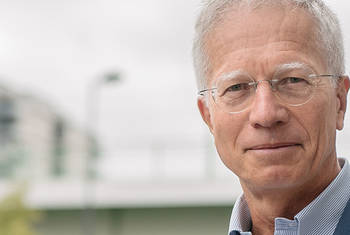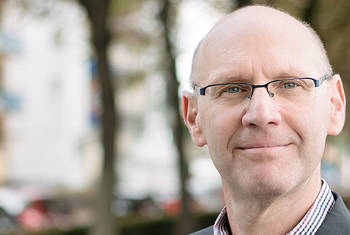Thomas Tröger How Can We Best Respond to Low Participation Rates in Elections?
Thomas Tröger is Professor of Economics at the University of Mannheim. He has previously held research posts at University College London, the University of California, Santa Barbara and the University of Bonn (where he completed his PhD). Tröger’s research focuses on game theory and microeconomics. A referee for numerous journals including Econometrica, Theoretical Economics and the International Game Theory Review, Tröger has provided consultancy expertise for the UK Radiocommunications Agency.
Area of Research
Microeconomic Theory and Game Theory
since 2010
2009-2010
Associate Professor
University of Bern (Universität Bern)
Department of Economics
2004-2009
Assistant Professor
University of Bonn (Rheinische Friedrich-Wilhelms-Universität Bonn)
Department of Economics
2001-2004
Assistant Professor
University of California, Santa Barbara
Department of Economics
1999-2001
Research Fellow
University College London
ELSE
1999
Ph.D. in Economics
University of Bonn (Rheinische Friedrich-Wilhelms-Universität Bonn)
Title: Bounded Rationality and Contracts
1995
Diploma in Mathematics
Karlsruhe Institute of Technology (Karlsruher Institut für Technologie)
- Econometrica
- American Economic Review
- Review of Economic Studies
- Quarterly Journal of Economics
Prizes
- Excellence in Teaching by the Students’ Association at the Department of Economics (2018)


University of Mannheim (Universität Mannheim)
Mannheim, GermanyFor generations, the University of Mannheim has been preparing students to take on leadership roles in business, academia, and society. One of the university’s strengths in this task is its profile, which is characterized by the economic and social sciences. It is in these fields that the University of Mannheim has repeatedly been ranked as one of the top 20 European research institutions. Key focuses of Mannheim researchers include decision-making processes and elections, governance, regulation, competition and innovation, migration and multilingualism, and the culture of change. The campus surrounding Mannheim’s baroque palace is a place where bright minds from across the globe come together to learn, discuss, research, and prepare to make their mark on the world.
Institute
The Collaborative Research Center (CRC) TR 224 – EPoS
The Collaborative Research Center (CRC) TR 224 – EPoS is a cooperation between the University of Bonn and the University of Mannheim. Funded by the German Research Foundation (DFG), it aims to analyze and provide policy proposals that address three key societal challenges: how to promote equality of opportunity; how to regulate markets in light of the internationalization and digitalization of economic activity; and how to safeguard the stability of the financial system.
Map
With a population exceeding 500 million, the participation of less than 5 million EU citizens in a recent survey on abolishing daylight saving was, to say the least, disappointing. In this video, THOMAS TRÖGER explores how voting rules can be used to account for the problem of voter abstention. Analyzing how voter actions will result in optimal outcomes (Nash Equilibrium) under different voting rules, Tröger identifies significant failings in majority voting with a quorum. With further work required on interdependent value settings, the research demonstrates that linear voting rules represent the most effective means of dealing with the abstention problem in private value settings.
LT Video Publication DOI: https://doi.org/10.21036/LTPUB10798
Linear Voting Rules
- Hans Peter Grüner and Thomas Tröger
- Published in 2019








